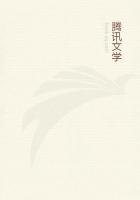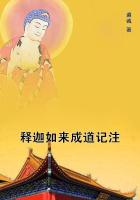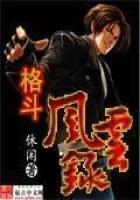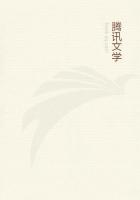Soc.Let us tell him that, before he appeared, you and I were saying that the probability of which he speaks was engendered in the minds of the many by the likeness of the truth, and we had just been affirming that he who knew the truth would always know best how to discover the resemblances of the truth.If he has anything else to say about the art of speaking we should like to hear him; but if not, we are satisfied with our own view, that unless a man estimates the various characters of his heaters and is able to divide all things into classes and to comprehend them under single ideas he will never be a skilful rhetorician even within the limits of human power.And this skill he will not attain without a great deal of trouble, which a good man ought to undergo, not for the sake of speaking and acting before men, but in order that he may be able to say what is acceptable to God and always to act acceptably to Him as far as in him lies;for there is a saying of wiser men than ourselves, that a man of sense should not try to please his fellow-servants (at least this should not be his first object) but his good and noble masters; and therefore if the way is long and circuitous, marvel not at this, for, where the end is great, there we may take the longer road, but not for lesser ends such as yours.Truly, the argument may say, Tisias, that if you do not mind going so far, rhetoric has a fair beginning here.
Phaedr.I think, Socrates, that this is admirable, if only practicable.
Soc.But even to fail in an honourable object is honourable.
Phaedr.True.
Soc.Enough appears to have been said by us of a true and false art of speaking.
Phaedr.Certainly.
Soc.But there is something yet to be said of propriety and impropriety of writing.
Phaedr.Yes.
Soc.Do you know how you can speak or act about rhetoric in a manner which will be acceptable to God?
Phaedr.No, indeed.Do you?
Soc.I have heard a tradition of the ancients, whether true or not they only know; although if we had found the truth ourselves, do you think that we should care much about the opinions of men?
Phaedr.Your question needs no answer; but I wish that you would tell me what you say that you have heard.
Soc.At the Egyptian city of Naucratis, there was a famous old god, whose name was Theuth; the bird which is called the Ibis is sacred to him, and he was the inventor of many arts, such as arithmetic and calculation and geometry and astronomy and draughts and dice, but his great discovery was the use of letters.Now in those days the god Thamus was the king of the whole country of Egypt; and he dwelt in that great city of Upper Egypt which the Hellenes call Egyptian Thebes, and the god himself is called by them Ammon.To him came Theuth and showed his inventions, desiring that the other Egyptians might be allowed to have the benefit of them; he enumerated them, and Thamus enquired about their several uses, and praised some of them and censured others, as he approved or disapproved of them.It would take a long time to repeat all that Thamus said to Theuth in praise or blame of the various arts.But when they came to letters, This, said Theuth, will make the Egyptians wiser and give them better memories; it is a specific both for the memory and for the wit.
Thamus replied: O most ingenious Theuth, the parent or inventor of an art is not always the best judge of the utility or inutility of his own inventions to the users of them.And in this instance, you who are the father of letters, from a paternal love of your own children have been led to attribute to them a quality which they cannot have;for this discovery of yours will create forgetfulness in the learners'
souls, because they will not use their memories; they will trust to the external written characters and not remember of themselves.The specific which you have discovered is an aid not to memory, but to reminiscence, and you give your disciples not truth, but only the semblance of truth; they will be hearers of many things and will have learned nothing; they will appear to be omniscient and will generally know nothing; they will be tiresome company, having the show of wisdom without the reality.
Phaedr.Yes, Socrates, you can easily invent tales of Egypt, or of any other country.
Soc.There was a tradition in the temple of Dodona that oaks first gave prophetic utterances.The men of old, unlike in their simplicity to young philosophy, deemed that if they heard the truth even from "oak or rock," it was enough for them; whereas you seem to consider not whether a thing is or is not true, but who the speaker is and from what country the tale comes.
Phaedr.I acknowledge the justice of your rebuke; and I think that the Theban is right in his view about letters.
Soc.He would be a very simple person, and quite a stranger to the oracles of Thamus or Ammon, who should leave in writing or receive in writing any art under the idea that the written word would be intelligible or certain; or who deemed that writing was at all better than knowledge and recollection of the same matters?
Phaedr.That is most true.
Soc.I cannot help feeling, Phaedrus, that writing is unfortunately like painting; for the creations of the painter have the attitude of life, and yet if you ask them a question they preserve a solemn silence.And the same may be said of speeches.You would imagine that they had intelligence, but if you want to know anything and put a question to one of them, the speaker always gives one unvarying answer.And when they have been once written down they are tumbled about anywhere among those who may or may not understand them, and know not to whom they should reply, to whom not: and, if they are maltreated or abused, they have no parent to protect them; and they cannot protect or defend themselves.
Phaedr.That again is most true.
Soc.Is there not another kind of word or speech far better than this, and having far greater power-a son of the same family, but lawfully begotten?
Phaedr.Whom do you mean, and what is his origin?

